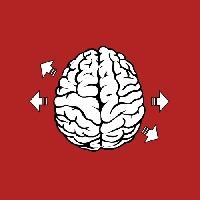Bugs: Recent Topics Paging, Uploading Images & Preview (11 Dec 2020)
Recent Topics paging, uploading images and preview bugs require a patch which has not yet been released.
Take A Chance - Luck, Chance & Randomness in Board Games
- thegiantbrain
-
 Topic Author
Topic Author
- Offline
- D6
-

Games of chance have been with us for millenia. Dice have been found in archaeological digs across the world, the oldest being those found at the Burnt City dig in Iran, thought to be from between 2800 and 2500 BC. Many civilisations have had games involving an element of luck, and ours is no different. Games of chance are mentioned in ancient texts from many civilisations and even referenced in the Bible.
Please Log in or Create an account to join the conversation.
- Jackwraith
-

- Offline
- Ninja
-

- Maim! Kill! Burn!
- Posts: 4370
- Thank you received: 5697
It extends to video games, as well, of course. One of my arguments against some of the base design in Hearthstone is that they're adding randomness (cards doing variable damage, generating random cards) on top of what is the essential randomness of all card games: the draw. If you don't draw the right cards, you have to make do with what you have. If you do, all is well. Adding more chaos on top of that is what they call "replayability" but if your game is good, it shouldn't have to depend on die rolls to make you want to play it again (unless it's craps, I guess.)
One thing I often appreciated about Columbia's (and others') block wargames is that a lot of the randomness/replayability is based on the fog of war inherent to the system; such that how players proceed is often the "random element" that the opponent faces. But, even there, there are still cards to be drawn and often dice to be rolled.
Good stuff.
Please Log in or Create an account to join the conversation.
Please Log in or Create an account to join the conversation.
Risk management and making decisions in the face of risk is a game skill, a really good one people practice every day in real life, and I loathe that the euro crowd has managed to label that aspect of gaming "luck" in popular parlance.
Please Log in or Create an account to join the conversation.
- Space Ghost
-

- Offline
- D10
-

- fastkmeans
- Posts: 3456
- Thank you received: 1304
Shellhead wrote: It's counter-intuitive, but rolling a single die is much more random than rolling a big handful of dice. Over the course of a game, the handful of dice will likely produce results in conformance with a bell curve, while the single die has an equal chance of producing each outcome on every roll.
The sum of the dice, of course.
It sounds pedantic, but I have been thinking for a while that there is a missed opportunity in game design with dice: Since increasing the number of dice (or increasing the sidedness of the dice, as well) increases the number of different combinatoric outcomes, it should be possible to use varying thresholds to model any distribution you want. It would be nice not to be wedded to the normal distribution...that also means we could model rare events, etc. in a different fashion. Should open up some game design space.
Please Log in or Create an account to join the conversation.
Please Log in or Create an account to join the conversation.
So i like dice chucking games that have almost no time before the roll or the roll isn't a binary win/lose (Stone Age, for example, let's you hedge your dice roll risk considerably by either loading up on villagers for a particular roll or investing in tools to raise the minimum value you'll get).
Conversely, games like Mage Knight are ALL planning, basically no luck, so even if i don't succeed i have no one to blame but myself.
The middle ground of "push your luck" games are a happy medium. In Yggdrasil you can play with no reliance on the dice at all, using Norns to back you if a dice roll doesn't go your way or vikings to ensure you will succeed without having to roll at all. I've found that leaning into the dice too much leads quickly to Ragnarok
For whatever i'm much less tolerant of blind bag or card deck randomness, even if i grok the randomness differences between those mechanics. The tumble of dice and the inevitable "off the table, across the floor, into a crack YES YES YES IT IS A 20 HOORAY!" moments are so worth it.
Please Log in or Create an account to join the conversation.
Gary Sax wrote: Can only +1 Jackwraith's comment.
Risk management and making decisions in the face of risk is a game skill, a really good one people practice every day in real life, and I loathe that the euro crowd has managed to label that aspect of gaming "luck" in popular parlance.
Eurogamers often seem smugly assured that their games are better because they focus on non-random economic competition in historical settings, making their games seem more realistic and educational. But their games tend to offer a lot more open information than can be found in the real world. Risk management is a valuable and practical skill that can be acquired from playing non-euro games.
Please Log in or Create an account to join the conversation.
Space Ghost wrote:
Shellhead wrote: It's counter-intuitive, but rolling a single die is much more random than rolling a big handful of dice. Over the course of a game, the handful of dice will likely produce results in conformance with a bell curve, while the single die has an equal chance of producing each outcome on every roll.
The sum of the dice, of course.
It sounds pedantic, but I have been thinking for a while that there is a missed opportunity in game design with dice: Since increasing the number of dice (or increasing the sidedness of the dice, as well) increases the number of different combinatoric outcomes, it should be possible to use varying thresholds to model any distribution you want. It would be nice not to be wedded to the normal distribution...that also means we could model rare events, etc. in a different fashion. Should open up some game design space.
You know, i was thinking about this the other day during a walk, ruminatingabout my long running idea of a pure dice chucking beer and pretzels level run n gun rpg.
Anyway, with differential colors you can get a lot of specific variability in dice. So a d6 has a black 1 (automatic failure) and a white 2-4 (50% miss) and red 5-6 (33% hit) for an average attack. But get a weapon enhancement to make the white numbers hit instead (going full auto perhaps) and you can adjust the hit chance in an easy, intuitive way that doesn't involve remembering to add a +1 or whatever (because you are drunk while playing
Scale this to a d8 (black 1 fail, white 2-5 50% miss, red 6-8 hit 38%), d10 (1 fail, 2-6 white 50% miss, 7-0 hit 40%) etc and you can create increasing weapon attack values for pistol/rifle/shotgun while still using the simple red/white color to count hits. Multiple dice added to the pool add additional predictable variability (hollow point ammo adds a d6 to your rifles d10, both hit on red, full auto on white but then you lose the d6 afterwards).
Anyway, just the chaos in my head.
Please Log in or Create an account to join the conversation.
But this all taps into my perspective on the efficiency and feasibility of free market micro/macroeconomic rationality.
Please Log in or Create an account to join the conversation.
- Space Ghost
-

- Offline
- D10
-

- fastkmeans
- Posts: 3456
- Thank you received: 1304
Gary Sax wrote: ^so pick the apriori distribution of outcomes you want in the design phase, *then* design a dice combination that creates that distribution?
Exactly -- decide what you want to do, find a distribution that mimics that, and then create the dice combination/rules to make it work.
Too much of what we do in game design, and in applied statistical analysis in general is the reverse: figure out what we can do, determine the distribution that is related to that, and then answer a question that is maybe not even the question we are interested in....
Seems silly
Please Log in or Create an account to join the conversation.
Please Log in or Create an account to join the conversation.
Please Log in or Create an account to join the conversation.
- thegiantbrain
-
 Topic Author
Topic Author
- Offline
- D6
-

Please Log in or Create an account to join the conversation.
- Sagrilarus
-

- Offline
- D20
-

- Pull the Goalie
- Posts: 8739
- Thank you received: 7353
As often as not I think the concept of risk management in our leisure time is a measurement of where we are in life and what we value, particularly in our view of the Self.
If you live in a world where you're out of control and in panic mode to keep your life or job on-track, an hour of firm ground may be what you find most refreshing. It may also be what lets you see yourself as a useful, successful, valuable person. That find-the-generally-agreed-upon-best-move action in a game, often done in conference with your opponents, can provide positive feedback when other parts of your life are not.
Conversely, if your life is slow and dull and predictable the opportunity to conquer the Vegas strip and pull off that big win by putting all your cash on one throw of the bones may be the escape more suited to you.
At some point I'd like to do a grand survey of hobby gamers, asking them questions about their lives and then about their gaming preferences and see if there is a correlation in one direction or the other. There may not be. This may be something I've just made up. But I'll tell you this -- on days when work has dropped a bucket of crap in my lap I'm much more comfortable with a game where there IS a correct move each turn, one that everyone at my table (except Chris) comfortably agree on.
Please Log in or Create an account to join the conversation.
 Games
Games














 How to resolve AdBlock issue?
How to resolve AdBlock issue?